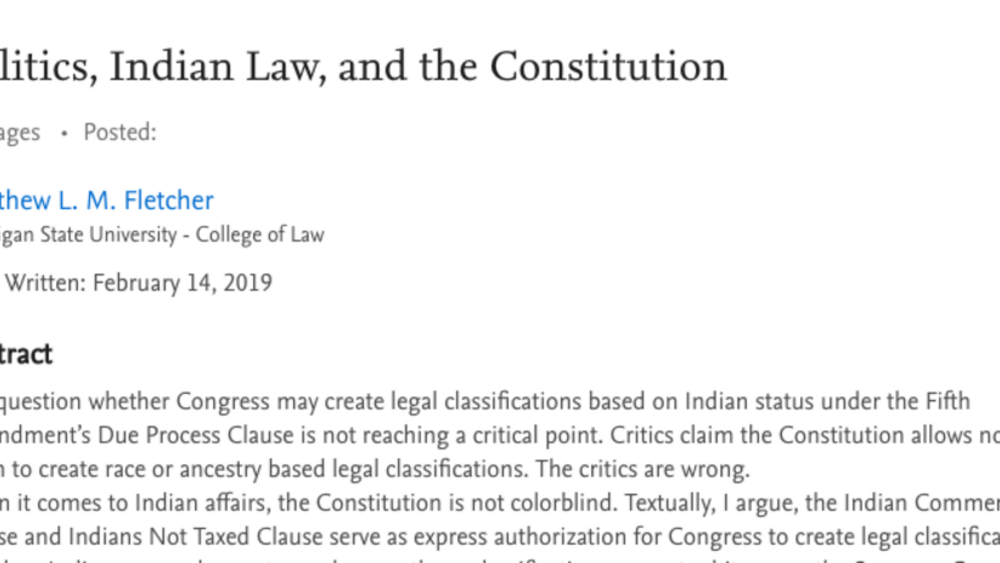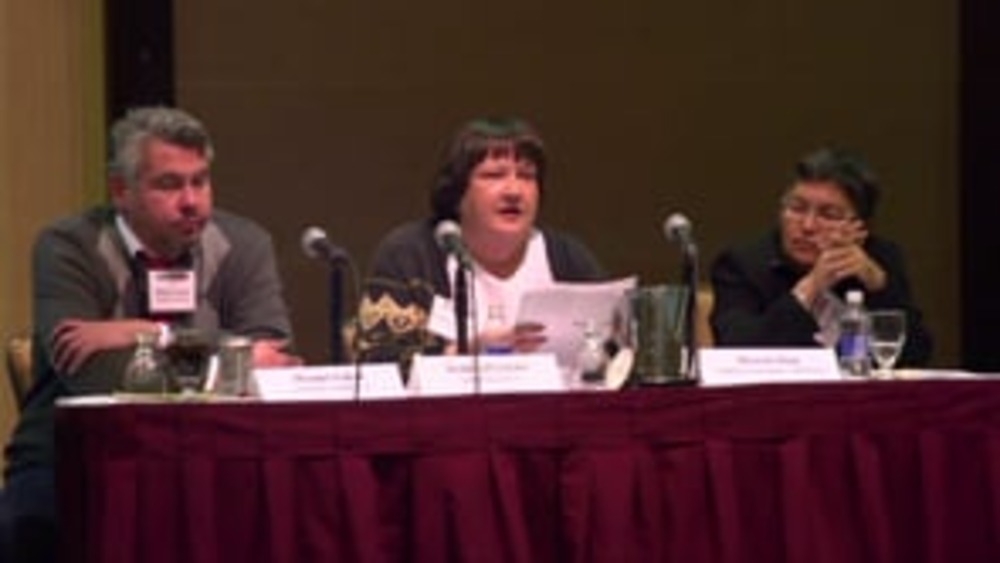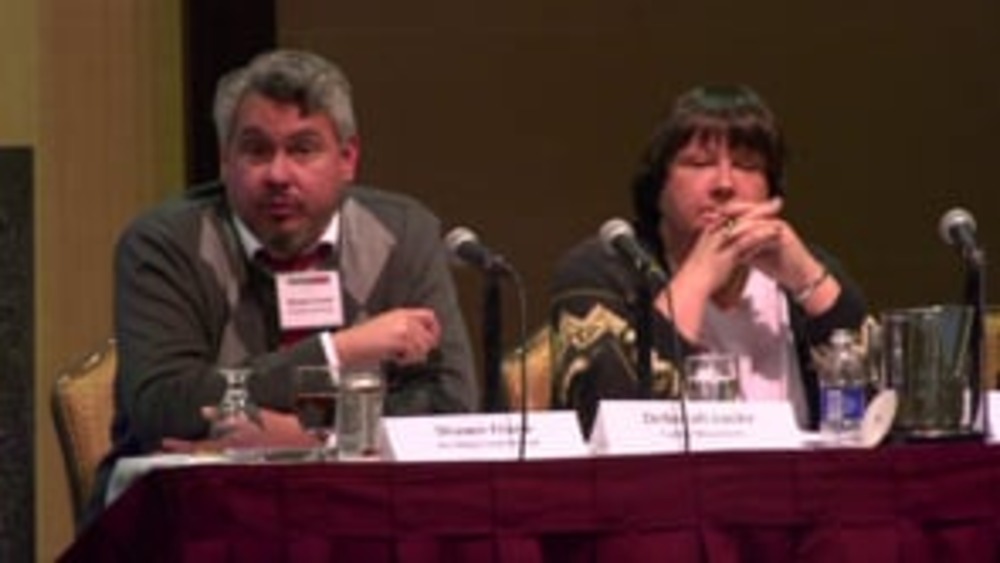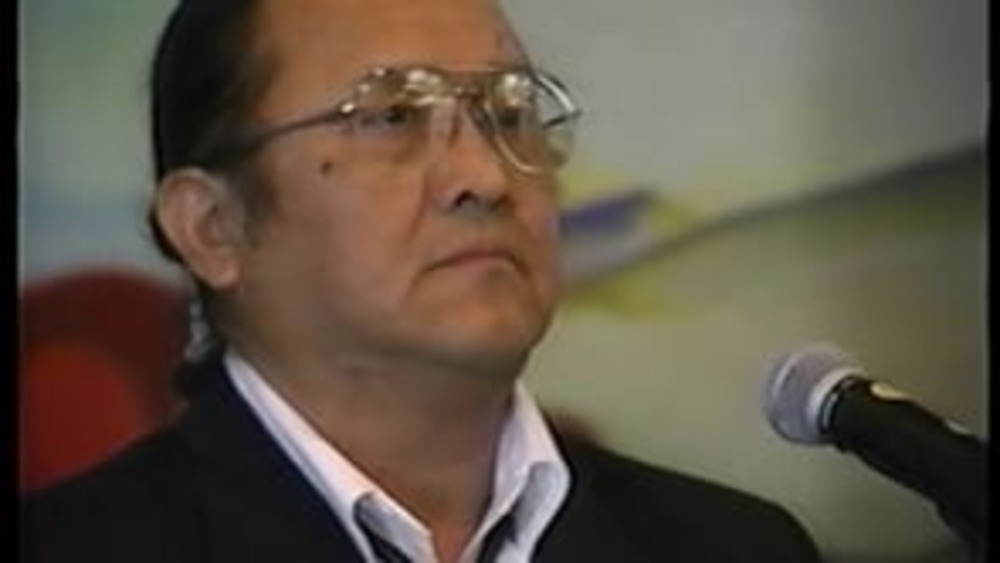Indigenous Governance Database
due process

Politics, Indian Law, and the Constitution
The question whether Congress may create legal classifications based on Indian status under the Fifth Amendment’s Due Process Clause is not reaching a critical point. Critics claim the Constitution allows no room to create race or ancestry based legal classifications. The critics are wrong. When it…

Deborah Locke: Disenrollment: My Personal Story
Deborah Locke, adopted by a Fond du Lac Band of Lake Superior Chippewa couple when she was a small child, shares her heartbreaking story of how she and her adopted siblings were disenrolled by the Band decades later because they were not the biological descendants of Fond du Lac Band members and…

Shawn Frank: Disenrollment: Considerations of Process
Attorney Shawn Frank stresses the importance of Native nations ensuring that they establish and operate processes for disenrolling their citizens that is fair and transparent. He also offers some strategies that a Native nation can follow in order to create that fairness and transparency -- and…

Honoring Nations: Robert Yazzie: The Navajo Nation Judicial Branch
Chief Justice Emeritus Robert Yazzie of the Navajo Nation Supreme Court talks about the Navajo Nation Judicial Branch's application of Navajo common law in its jurisprudence as an example of the importance of Indigenous cultural values and common law into the governance systems of Native nations.

Disenrollment Demands Serious Attention by All Sovereign Nations
For most people, their sense of who they are–their identity–is at least partially defined from connection to others and to a community. When individuals are forced to sever those connections, the consequences can be devastating. Unfortunately, all too often in tribal disenrollment conflicts–like…
